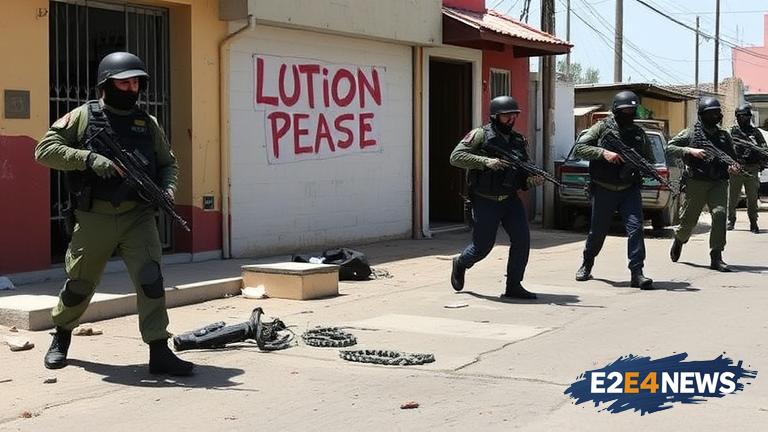The city of Celaya, located in the state of Guanajuato, Mexico, has been embroiled in a brutal cartel war for years. Despite efforts by the government to quell the violence, the situation remains dire. In a shocking move, the mayor of Celaya recently fired half of the city’s police force, citing corruption and ineffectiveness. However, the decision has failed to bring about the desired peace, and the cartel war rages on. The cartels, which have infiltrated every level of society, continue to terrorize residents, extort businesses, and engage in violent turf wars. The mayor’s decision to fire the police officers has been met with skepticism by many, who question whether it will have any real impact on the cartel’s grip on the city. Others have expressed concern that the move will only serve to further destabilize the region. The cartel war in Celaya is just one example of the broader violence that plagues Mexico. The country has been embroiled in a deadly conflict between rival cartels and government forces for over a decade, resulting in tens of thousands of deaths and disappearances. The situation in Celaya is particularly dire, with the city experiencing some of the highest levels of violence in the country. Residents live in fear of being caught in the crossfire, and many have been forced to flee their homes in search of safety. The economic impact of the cartel war has also been devastating, with businesses forced to close and investment drying up. The Mexican government has pledged to take action to address the violence, but so far, its efforts have been met with limited success. The cartels continue to adapt and evolve, using new tactics and strategies to evade law enforcement and maintain their grip on the city. The situation in Celaya is a stark reminder of the challenges that Mexico faces in its efforts to combat organized crime. The country’s proximity to the United States, its porous borders, and its corrupt institutions have all contributed to the growth and proliferation of the cartels. The cartel war in Celaya is also having a profound impact on the city’s social fabric. Families have been torn apart, and communities have been left to pick up the pieces. The psychological trauma caused by the violence is likely to be felt for generations to come. The international community has condemned the violence in Celaya and called for greater action to be taken to address the root causes of the conflict. The United States, in particular, has a significant role to play in helping Mexico to combat the cartels, given its own history of fueling the demand for illicit drugs. However, so far, the response from the US has been limited, and the cartels continue to exploit the porous border between the two countries. As the situation in Celaya continues to deteriorate, it is clear that a new approach is needed. The Mexican government must take bold action to address the corruption and ineffectiveness that has allowed the cartels to thrive. The international community must also do more to support Mexico in its efforts to combat organized crime. Only through a concerted effort can the cartel war in Celaya be brought to an end, and the city’s residents be given the peace and security they deserve. The people of Celaya are resilient and determined, and they will not give up in the face of adversity. However, they need the support of their government and the international community to rebuild their city and create a safer, more prosperous future. The cartel war in Celaya is a complex and multifaceted issue, and there are no easy solutions. However, by working together and taking a comprehensive approach, it is possible to create a brighter future for the city and its residents. The first step is to acknowledge the scale and complexity of the problem, and to commit to taking bold action to address it. The people of Celaya deserve nothing less.



